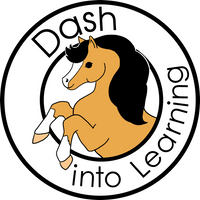How to Make Spelling Training Fun for Young Learners
Hey friends, let’s just say it. Teaching beginning spelling words to young learners can sometimes be really hard! English words are especially crazy, right? I still hate spelling the word receipt and what about words like knead and need?!
Keeping your child engaged and excited about learning how to spell is crucial for your homeschool curriculum. But, it can be tricky to strike a balance between fun and effective learning. Mastering spelling at an early grade level is so important. It builds the foundation for strong writing and reading skills.
So, why is it essential for young learners to confidently spell English words? Let’s dive into how you can make spelling training enjoyable while helping your child develop this fundamental skill.
So why is spelling such an important part of the curriculum?
Beginner spelling is a critical part of learning the English language(and your homeschool curriculum). It directly influences reading, writing, and communication skills.
When children learn to spell at an early grade level, it improves their ability to understand words in general. This is going to help boost reading comprehension and fluency. Spelling also helps kids organize their thoughts more clearly when writing.
But why is it important for young learners to grasp spelling early on?
Mastering spelling gives them a couple of key strengths. It enhances their ability to recognize patterns in words, improves their vocabulary, and builds the confidence needed to excel academically. Plus, as they progress through their school years good spelling habits make writing tasks less frustrating.
This makes it more enjoyable and in turn, leads to long-term success. Being a poor speller can really kill a kid’s confidence later on, so it’s important to explicitly teach it and practice it.
How we like to teach spelling
Helping your child improve their spelling skills doesn’t have to be overwhelming. With a few simple strategies, you can make spelling practice both effective and enjoyable.
One of the best places to start is by creating personalized word lists tailored to your child’s grade level. These lists can include frequently used words, tricky spelling patterns, and commonly misspelled words. Focus on words your child often encounters in reading or struggles with in writing, and work them into your daily activities.
It’s also important to address common mistakes early on. Many children find certain misspelled words difficult. This usually happens because of irregular spelling patterns in the English language.
By helping them recognize and correct these errors, you set them up for success. Encourage them to practice regularly and review any tricky words until they feel confident. Dash into Spelling curriculum has built-in personal review spelling lists to keep track of those tricky words.

5 of our favorite spelling activities for home:
Here are some of my favorite ways to make spelling fun. Try just one or two of these interactive and fun activities at home. Here are five creative ways to make spelling training enjoyable for your child:
- Spelling Scavenger Hunt: Hide word cards around the house, and have your child find and spell each word out loud.
- Spelling Word Bingo: Create bingo cards with spelling words, and call out words for your child to match on their card.
- Magnetic Letters : Use magnetic letters on the fridge to create words and practice spelling in a hands-on way.
- Spelling Games with Everyday Objects: Use objects like building blocks or flashcards to form words, making spelling more playful and interactive.
- Roll a Dice: Turn spelling drills into a game by rolling a dice and having to spell words a certain way. Like if a 6 is rolled the child spells it as loud as they can, or if a 2 is rolled the child claps to each letter or sings their spelling word.
All of these activities can be easily adapted to fit your child’s specific grade level and spelling needs. Giving learning a fun and personalized feel. Have fun with them!
Spelling curriculum challenges you might run into
Some English words can be tricky to spell, especially for young learners. Words that break the typical spelling rules, like “receive” or “friend,” often trip kids up.
When your child encounters these difficult words, patience and practice are key. Encourage them to focus on the patterns they can rely on, but also teach them strategies for remembering exceptions to the rules.
You can also support your child by helping them tackle frequently misspelled words. Do this through through consistent review and reinforcement. Praise their progress and remind them that learning to spell can be fun and will be worth it, even when it’s a bit challenging.
You can do this!
Spelling training doesn’t have to feel like a chore for either you or your child. By incorporating a mix of fun activities and consistent practice, you can help your child master spelling words with ease.
Start by introducing personalized word lists and trying out some of the interactive activities. Make sure to stay patient as they work through misspelled words, remember how tricky some English words can be.
Take small steps. Creating a motivating learning environment and practicing a little bit each day can make a big difference. Use it to your child’s advantage and build confidence and success in spelling.
Happy Learning! Try Dash into Spelling HERE for your full spelling training curriculum! Easy, open-and-go, FUN spelling for kids.





